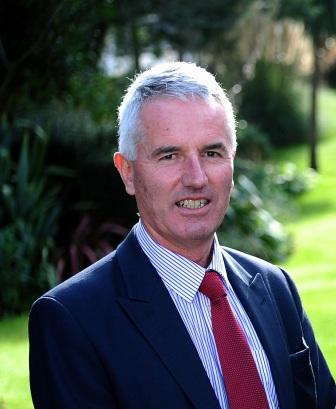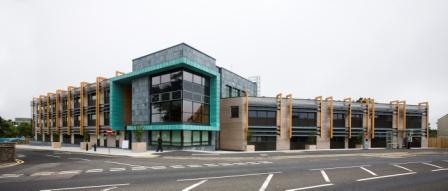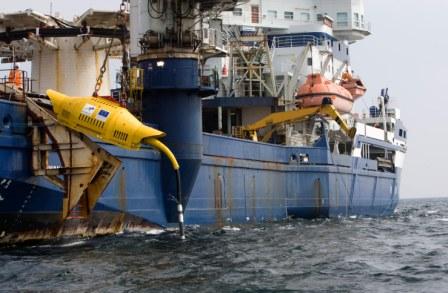As the South West RDA begins to clear out its desks, former head of business development, Stephen Bohane, defends its record in Cornwall, explaining how the agency has helped shape the Duchy’s future.
The South West Regional Development Agency has not always enjoyed the highest levels of popularity in Cornwall.
Brickbats have regularly been flung inthe RDA’s direction over the years, and when it was announced 12 months ago that it was being consigned to the dustbin of history in preference to a more local solution, there was not much dissent.

Ironically enough, in the intervening months local opinions towards the RDA have shown signs of softening and there is every chance as we move forward that its legacy will be remembered even more fondly.
The South West RDA’s outgoing head of business development, Stephen Bohane, strongly defends the RDA’s record in Cornwall and the Isles of Scilly, claiming that many of its investments have laid the foundations for the Duchy to become a significantly more prosperous place.
With the RDA’s help, he claims, public money has gone into projects where once private investment feared to tread. That it has helped smooth a pathway for private money to follow in behind.
The writing was on the wall for the English RDAs as soon as keys were exchanged at Number 10 last May. The Conservatives had made little secret of their dislike of the regional agenda, while the Lib Dems, at the very least, envisaged a radical overhaul.
And it was arguably this ‘regionalism’ that meant that the RDA and Cornwall were so often uncomfortable bedfellows. A quango with a head office in Exeter and a remit that extended as far east as Bournemouth and north up to Gloucester, was always likely to be open to criticism in a place like Cornwall, with its strong sense of identity.
Bohane recalls that geographical misgivings extended well beyond the Tamar, however. He explains: “When the Government first set up the RDAs in 1998, there was a huge row across the country about where the boundaries should be, not just in Cornwall.
“And the Government said, in my view quite rightly, that they’re not going to argue about it forever – which is what would have happened – this is the map, like it or lump it.
“But it gave us an incredibly large and incoherent region. But it was not just Cornwall who had a problem with it, Gloucester considered itself more a part of the West Midlands, while there was a strong argument from Bournemouth and east Dorset to go in with the Isle of Wight and Hampshire to have an RDA for the central south.”
But while Bohane accepts some of the criticisms levelled at the RDA, he does not accept the notion that all the major decisions were taken in Exeter or Bristol.
“That’s not fair,” he says. “Decisions were taken as much in Truro. There has always been a Truro office from the word go.”
He does admit, however, that the RDA didn’t always get it right and was “initially quite arrogant” in some of the things it said. It was also over optimistic on the delivery timescale for many projects, which left it wide open for criticism over the apparent slow pace.

While the regeneration work in Camborne, Pool, and Redruth continues apace and is there for all to see, for many years there was a growing frustration at the inactivity behind the hoardings. “Every stone we turned over revealed more work that was needed before we could even put a spade in the ground,” says Bohane. “We learned a real lesson on how long these projects take.”
In hindsight Bohane admits the RDA should have been more realistic in its timescale. The same goes for the regeneration work of St Austell town centre. “I got in a lot of trouble there,” he admits, “in giving a very optimistic view on when the town centre would be built. I had to go on radio and television several times to explain why things were so behind schedule.
“But these projects are not easy. For example, one of the sites we needed to buy was the old Tesco store in the centre of town. But Tesco refused to sell so we have to go through a compulsory purchase order. That alone cost us a year.
“We were accused of all sorts. People said we would give up but we carried on and you go there now and it’s doing very well. The private sector would never have touched that project, it was difficult enough for the public sector.”
And he admits that there have perhaps been times when the RDA has been too forcible and undiplomatic in Cornwall, when bringing in outside input.
“The example that comes to mind,” he says, “is the innovation centres. We hired a national expert on innovation centres and he had quite a thorny relationship with some of the partners in Cornwall because he challenged their thinking. But the good news is one is up and running and another is about to come on line. And hopefully there will be a medically related one at Treliske in the near future.”
Bohane is proud of the work the South West RDA has put into development of quality office space such as the Pool Innovation Centre. The development of quality office space has traditionally been a problem in Cornwall due to market failure. The high costs of construction combined with low land values and the lack of blue chip tenants, have led to perceived high levels of risk on behalf of developers.

But the RDA has been able to bridge the gap and in some cases directly build premises. Going back a few years now, Tolvaddon Energy Park, says Bohane, is a good example of the amount of effort that has gone into workspace. “There is no way the private sector would have built that at the time,” he says, “although they probably would today, because we have proved the market.”
Two of the South West RDA’s most successful and high profile investments are the Eden Project and Combined Universities in Cornwall (CUC), while it has also invested significantly in the development of Newquay Airport, which he says is of “huge significance” to the Cornish economy.
“The airport has a hugely exciting future for the economic development of Cornwall,” he says. “It is a great asset and has a number of USPs.
“And it has bags of land around it. There is real private sector interest around the airport. I played a part in bringing AgustaWestland to Newquay and am aware of strong interest from other global blue chip aviation-related companies looking at the airport. Even if just one of them invests, it will be really significant for Cornwall.
“The CUC was a very brave move to stop exodus of young people from Cornwall. I was involved in the early days and was asked by some senior civil servants what would happen if the students didn’t come. But they did and it’s been a massive success. It’s a long-term plan, but it is and will continue to be a transformational project for Cornwall.”
Of course, the RDA coffers have been far from a bottomless pit and it has had turn down many schemes over the years, and backtrack on others when Government cutbacks first started to hit.
“Investment decisions were not taken by the RDA alone,” says Bohane, “but with partners such as the Council. But remember we were looking for economic output and had to turn away a number of good projects, including social projects, that didn’t have a hard-edge economic output.
“And we were besieged by tourism projects. We could support schemes like Eden, because they brought new visitors into Cornwall, but we were unable to support projects which simply shuffled visitors around.
“And we had to be equally as hardnosed about investments we made in business. Our requirement was to create skilled jobs, higher value jobs that could support the transformation of the economy.
“And all the evidence suggests that we have been fairly successful. Over the years Cornwall has had one of the highest regional growth rates, and RDA and European funding has had something to do with that.”
Bohane points to a number of highly successful companies in Cornwall where the RDA has been involved at significant stages of their development, such as Pendennis Shipyard, Fugro Seacore, and St Austell Brewery, where it invested in its bottling plant.
Another brewery to benefit from early RDA investment was Sharp’s, which grew to become such an attractive business that Molson Coors recently acquired it for £20 million, with a pledge to expand its existing Rock premises and create more jobs.
And beyond that, Bohane lists the RDA’s broadband investments; sustainable energy projects such as the Wave Hub; and money towards business support initiatives such as high growth start up support and coaching, delivered by Oxford Innovation, as further evidence of the legacy that it will be leaving.

He says the RDA years have been an exciting time. “When I arrived in 1999, most of the news from Cornwall was bad. The only significant project attracting attention at that stage was Tate St Ives. But in subsequent years, Cornwall has been in the headlines for the right reasons.”
Bohane appreciates the fact that the regional agenda is dead, for the time being at least, but hopes Cornwall doesn’t become too inward looking as the Cornwall and Isles of Scilly Local Enterprise Partnership begins to take shape.
While the Government has labelled the LEPs a replacement for the RDAs, the key difference, of course, is that they will receive very little direct Government funding. The exact functions of the local LEP are still a little sketchy, but Bohane is sure to be an interested bystander.
He says: “The LEPs haven’t decided what they want to do exactly, and it’s up to them how many of the RDA functions they try to take on, but they won’t have the cash.”
Most of the funding for LEP projects will come from the Regional Growth Fund. Round one has already passed with a first allocation to the wider south west worth £8 million, which compares with the original SWRDA allocation of £142 million.
“It will be very interesting watching from the sidelines whether they decide to tackle the broad economic agenda or try and concentrate on one or two key areas.”
What would he recommend? “I’ll leave that to them,” he diplomatically sidesteps. “You can argue a case both ways.”
This article first appeared in the June 2011 issue of Business Cornwall magazine









